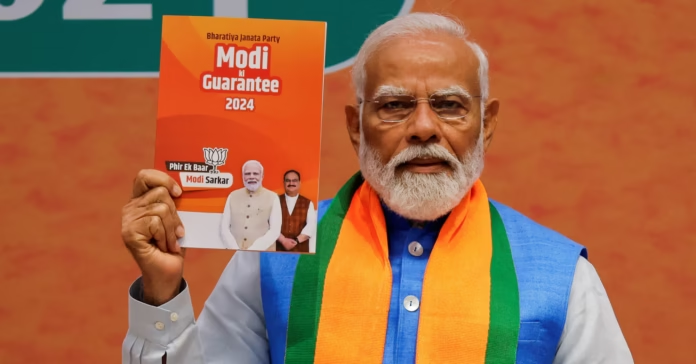Introduction
The Bharatiya Janata Party (BJP) is one of the most influential political parties in India. Founded in 1980, the party has played a crucial role in shaping India’s political and economic landscape. With its roots in Hindutva ideology and a vision of nationalistic development, the BJP has significantly impacted India’s governance.
In this article, we will provide a detailed overview of the BJP, its history, ideology, leadership, achievements, challenges, and electoral performance. A detailed table of BJP’s features, structure, and policies is also included for better understanding.
History of BJP
The BJP evolved from the Bharatiya Jana Sangh (BJS), which was founded in 1951 by Syama Prasad Mukherjee. The party merged with several others to form the Janata Party in 1977. However, internal conflicts led to its breakup, and in 1980, the BJP was officially established under the leadership of Atal Bihari Vajpayee, L.K. Advani, and Murli Manohar Joshi.
Evolution of BJP:
- 1951 – Formation of Bharatiya Jana Sangh (BJS) by Syama Prasad Mukherjee.
- 1977 – Merged with Janata Party, won general elections.
- 1980 – BJP officially founded after Janata Party split.
- 1996 – BJP formed its first government under Atal Bihari Vajpayee for 13 days.
- 1998-2004 – Led the National Democratic Alliance (NDA) government under Vajpayee.
- 2014-Present – BJP achieved full majority under Narendra Modi and continues to govern India.
Ideology and Core Principles
The BJP is guided by the principles of Hindutva, nationalism, and economic development. The core ideology revolves around:
- Hindutva and Cultural Nationalism – Promoting India’s cultural heritage and traditions.
- Integral Humanism – A philosophy introduced by Deendayal Upadhyaya focusing on self-reliance and inclusive growth.
- Development and Governance – Economic reforms, digital India, Make in India, and infrastructural development.
- National Security and Strong Foreign Policy – Strengthening the military and fostering diplomatic relations.
- Self-Reliance (Aatmanirbhar Bharat) – Encouraging indigenous industries and reducing dependence on foreign products.
BJP’s Leadership
The BJP has been led by several influential leaders over the years. Here are some of the most notable ones:
| Leader | Tenure | Key Contributions |
|---|---|---|
| Atal Bihari Vajpayee | 1998-2004 | Economic reforms, Golden Quadrilateral Project, Pokhran-II nuclear tests |
| L.K. Advani | 1986-2009 | Promoted Hindutva, led Ram Janmabhoomi movement |
| Narendra Modi | 2014-Present | Digital India, Make in India, GST implementation, Article 370 abrogation |
| Amit Shah | 2014-Present | Strengthened BJP’s electoral presence, led political campaigns |
Achievements of BJP
The BJP has implemented several policies and reforms that have had a significant impact on India’s development.
Major Achievements:
- Economic Reforms: Implementation of GST (Goods and Services Tax), reducing tax complexities.
- Foreign Policy: Strengthened diplomatic relations with USA, Russia, Japan, and Middle Eastern nations.
- Infrastructure Development: Projects like Bharatmala, Sagarmala, and Smart Cities Mission.
- Social Schemes: Ayushman Bharat, Pradhan Mantri Awas Yojana, and Ujjwala Yojana.
- National Security: Revoking Article 370, Balakot Air Strikes, modernization of armed forces.
- Digital Revolution: Launch of Digital India, UPI Payments, and Aadhaar linking initiatives.
Read More:Why Choose TheSpark Shop Batman Wireless Bluetooth Earbuds
Electoral Performance
The BJP has consistently been a dominant force in Indian elections, winning multiple state and national elections.
General Election Performance:
| Year | Seats Won | Prime Minister |
| 1996 | 161 | Atal Bihari Vajpayee (13 days) |
| 1998 | 182 | Atal Bihari Vajpayee (Full term) |
| 1999 | 182 | Atal Bihari Vajpayee |
| 2014 | 282 | Narendra Modi |
| 2019 | 303 | Narendra Modi |
State Elections (Recent Results):
- Uttar Pradesh (2022) – BJP retained power under Yogi Adityanath.
- Maharashtra (2019) – BJP formed an alliance government.
- Gujarat (2022) – BJP secured a landslide victory.
Challenges Faced by BJP
Despite its successes, BJP faces several political, social, and economic challenges:
- Farmer Protests – Opposition to farm laws led to massive protests.
- Communal Tensions – Criticism for handling religious issues.
- Economic Slowdown – Unemployment concerns and inflation.
- Opposition Alliances – Strong opposition from parties like Congress, TMC, and AAP.
Detailed Table of BJP’s Features and Policies
| Feature | Details |
| Founded | 6 April 1980 |
| Founders | Atal Bihari Vajpayee, L.K. Advani, Murli Manohar Joshi |
| Headquarters | 6A Deen Dayal Upadhyaya Marg, New Delhi, India |
| Political Ideology | Hindutva, Nationalism, Economic Growth |
| Major Leaders | Narendra Modi, Amit Shah, J.P. Nadda |
| Current Seats in Lok Sabha | 303/543 (2019) |
| Economic Policies | GST, Digital India, Make in India, Start-up India |
| Social Welfare Programs | Ujjwala Yojana, Ayushman Bharat, Swachh Bharat Mission |
| Infrastructure Projects | Bharatmala, Smart Cities, Atal Tunnel |
| Foreign Relations | Strong ties with USA, Russia, Japan, Middle East |
Conclusion
The Bharatiya Janata Party (BJP) has established itself as a dominant force in Indian politics. With strong leadership, a well-defined ideology, and significant governance achievements, it continues to influence India’s political landscape. However, challenges such as economic concerns, political opposition, and social unrest remain. As India moves forward, the BJP’s policies and governance strategies will play a crucial role in shaping the nation’s future.
FAQs
1. What is the main ideology of BJP?
BJP follows Hindutva, nationalism, economic development, and integral humanism.
2. Who are the key leaders of BJP?
Narendra Modi, Amit Shah, J.P. Nadda, and Yogi Adityanath are the prominent leaders.
3. What are BJP’s biggest achievements?
Key achievements include GST, Digital India, Make in India, Ayushman Bharat, and Article 370 revocation.
4. When was BJP founded?
BJP was officially founded on 6 April 1980.
5. How many seats does BJP have in Parliament?
As of 2019, BJP holds 303 seats in Lok Sabha.
